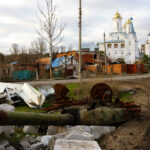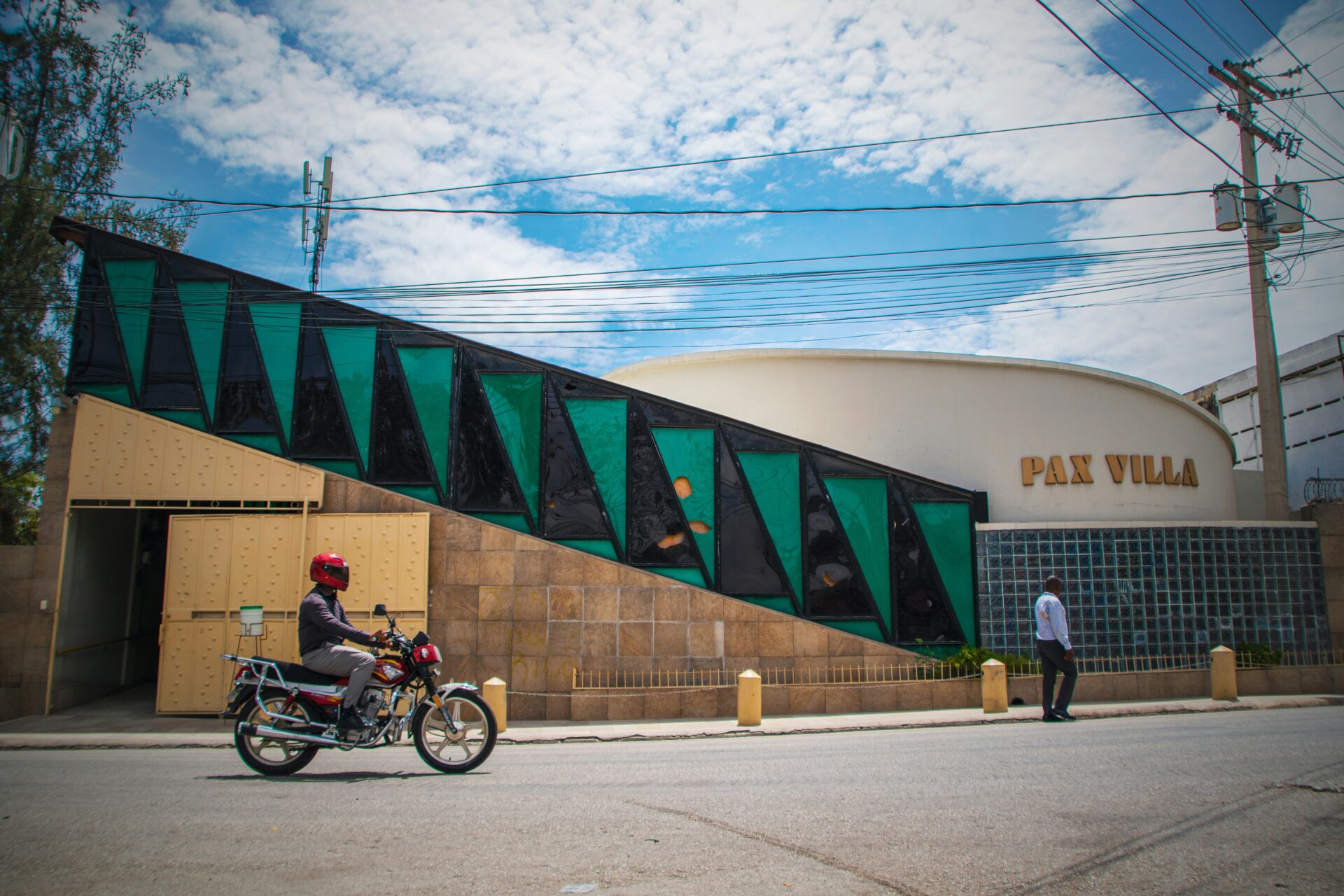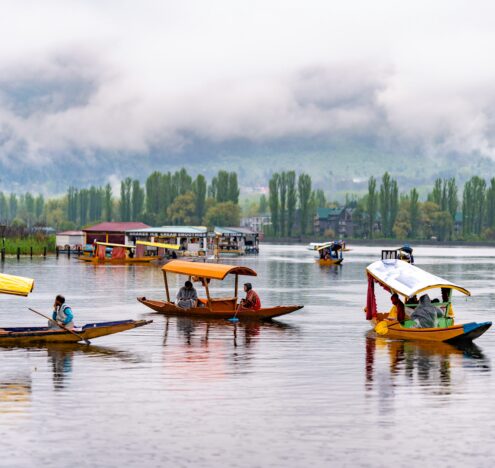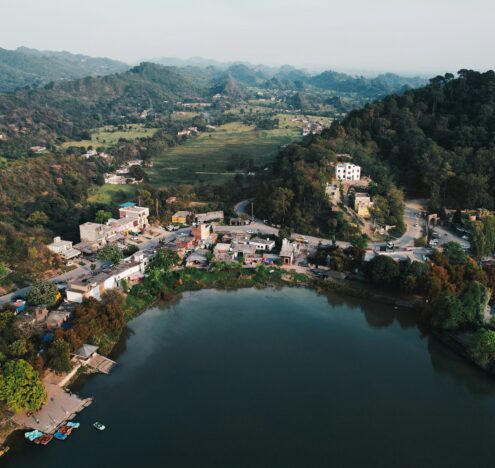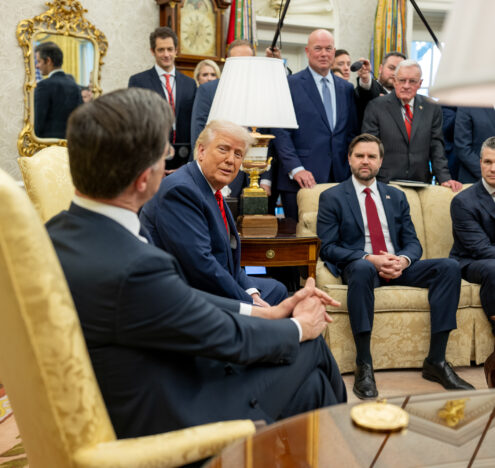After weeks of consultations, and amid a near total breakdown of law and order in Haiti, a Caribbean Community (CARICOM)-led effort to create a new transitional governing council may be nearing completion. The council’s establishment would allow for the entry of a multinational security force that would then be able to join with the Haitian National Police and restore order. Some have suggested the inclusion of “enablers” for the new security force — air support, drones, intelligence. But to gain the trust of the Haitian people, the new governing council will need its own popular “enablers,” a systematic way to include many more sectors of Haitian society that are currently ignored or deliberately excluded from governance.
After two and a half years of temporary governance under acting Prime Minister Ariel Henry, an Eminent Persons Group from CARICOM is near to closing on a deal that would bring six political representatives and one private sector leader into a Presidential Council, with two civil society and religious leaders joining as observers. As it is currently envisioned, this would then allow Henry to resign and turn over power to the council, which would elect a new interim president and name a new interim prime minister to lead the country to elections after stability is restored by a multinational security force.
While it looks simple enough on paper, the plan is fraught with challenges. To begin with, many believe the council will only be able to take power if it is escorted by a robust personal security force. It is not clear who provides that force. Kenya has agreed to lead a United Nations-sanctioned multinational security support (MSS) mission, but it is hoping this new transitional government would help the force gain legitimacy in Haiti, not be something it would need to physically protect. A more reasonable arrangement might be for a privatized security force to be contracted to provide protection to the new government, while the MSS continues to restore security more broadly across the country in support of the beleaguered, but resilient, Haitian National Police, some of whom fight on through sheer grit and are determined not to let the country fall into total anarchy.
Assuming arrangements are made for physical protection of the new body, and it can begin governing, the longer-term issues of legitimacy and inclusion will immediately manifest themselves. Haiti’s recent crisis has been severe — with a gang takeover of much of the capital and now increasing threats to take over the country altogether. But it comes at the conclusion of years of ineffective, corrupt and unpopular insular government, highlighted most dramatically in 2019 when Haitians went to the streets en masse to protest against the theft of up to $2 billion in a government scandal. Voter participation in presidential elections going back to 2010 has hovered between 20% and 28%. The Haitian people are simply wary of any governing arrangement, especially those they are not involved in.
Vibrant But Struggling Civil Society
There is much to work with in Haiti at present, a fact that is often lost in a news cycle that has taken “if it bleeds it leads” to an extreme. One major news outlet we met in Haiti in February said they would pass on the positive stories we offered; they were there on a reconnaissance mission to prepare to cover the violent drama they assumed would soon manifest itself. No wonder so many assume nothing is possible in Haiti, their only frame of reference is burning tires and AK and machete wielding gangs marauding through the streets. The real story is a much more redeeming one.
Under the father and son Duvalier dictatorship (1957 to 1986) any hint of citizen organization was harshly repressed. As Human Rights Watch reported in 2011: “The Duvaliers stunted civil society with harsh repression of any signs of independence among political parties, trade unions, and the press. The Duvaliers created multiple military and paramilitary institutions to impose their will on the civilian population and to avoid creating a single center of power outside the presidency.”
There is much to work with in Haiti at present, a fact that is often lost in a news cycle that has taken “if it bleeds it leads” to an extreme.
Civil society came alive much faster than political parties after the flight of Jean-Claude Duvalier in 1986, and according to analyst Patrick Costello “incontrast to many other countries emerging from dictatorial rule, political parties in Haiti were among the least developed parts of civil society. Rather, the strength of Haitian civil society lay in its breadth and diversity outside the narrow realms of electoral politics.” It is one of the paradoxes of recent Haitian history, he pointed out, “that it was this collection of farming cooperatives, grassroots church organizations, community groups, independent media, trade unions, student and women’s groups which enabled the army to come to power in the mid-1980s by removing the monopoly of the Tontons Macoutes.” The Tontons Macoutes (Volontaires de Sécurité Nationale; National Security Volunteers) was a militia formed by peasants loyal to the Duvaliers.
Civil society grew through the early 2000s with ups and downs, but consistently becoming stronger and more vibrant. Analyst Georges Fauriol wrote in March 2022 that “most likely as a consequence of the disjointedness of Haiti’s political experience over the past three decades, civil society has developed into a diverse community. Some of it is now representative of modern social or political pressure groups typical of democratic environments (human rights organizations, local community interests, women’s groups, students/youth, labor unions, and the media) that have found some space to prosper.”
Dr. Marie Deschamps, a humanitarian peacebuilder in Haiti and a finalist for USIP’s 2023 Women Building Peace Award, says the strength of civil society is often overlooked in political arrangements and in international assistance. “So many times, when the world came to try to help Haiti, the essential failure was that it partnered only with elites or the state bureaucracy, and excluded civil society and organizations working on the ground for the public good. The world can help us bring peace by allying with the people, and with those who are working entirely for the people’s well-being,” she said in an interview with USIP.
Building Sustainable Peace
Even as civil society has grown more diverse and dynamic, no political outlet has been developed to channel its energy. One of the key challenges since the transition to democracy in the 1990s has been creating democratic institutions (both formal and informal) strong and dynamic enough to allow for the inclusion of a broad range of voices in the government and establish a coherent national consensus.
While multiple studies have shown that negotiations become easier the fewer participants are around the table, it is also well established that for peace agreements, there is a strong correlation between active civil society participation and the durability of peace. Processes that involved little to no civil society participation saw agreements later collapse, and conflict resume. To prevent such arrangements from collapsing altogether, the international community in some cases had to incur heavy costs through long-term peacekeeping commitments.
On the contrary, processes that involved strong participation from civil society enjoyed more sustainable and lasting agreements. Even for cases where there was limited participation in the negotiation stage, peace agreements lasted longer when civil society actively participated during its implementation period. These actors can bring technical and practical advice to decision-makers that can enhance governing capacity by channeling expertise, showcasing early victories, enhancing the legitimacy of the new transitional government and helping authorities communicate more effectively the implementation of key issues, such as the restoration of basic services and a planned road map to elections.
National Advisory Council and Citizen Roundtables
The current US-backed proposal has the inclusion of two “observers” to the talks from civil society, which is a healthy start. But when the transitional government takes office it would benefit from the establishment of a National Advisory Council one step down from the Presidential Council. A council of 20 individuals, an equal number of men and women, drawn from key areas of civil society and the country’s departments, would be empowered with the mandate to bring new ideas, expertise and awareness to the Presidential Council. In addition to the 10 departments, sectors could include agriculture, business, the diaspora, education, health, human rights, labor, religion, women, and youth.
Such civil society participation could also build on the regional roundtables established under the earlier Dec. 21 agreement that provided for a series of civil society engagements and listening sessions with different sectors of the country. It could help to inoculate the members of the Presidential Council against undesirable actors such as insurrectionist leader Guy Phillipe or gang leader Jimmy Cherizier a.k.a. Barbecue by garnering support among the populace that nefarious actors must circulate among and would be a first step in ending the country’s endemic polarization. On a certain level it would help fill the void for the lack of a congress, which will only be elected in the next round of elections.
There is a very narrow window for reestablishing security and stability in Haiti, set against a very real threat of a gang takeover of the country.
The selection of the representatives to such an Advisory Council can also be a genuine process of participation, with each of the sectors and departments engaging in internal democratic processes for postulating their candidates and electing their leaders. Once formed, the council can also support the transitional government in the organization of a national dialogue that could set the parameters for the long-delayed reform of the Haitian Constitution, and create a baseline for a future National Development Plan designed by an elected national government.
The international community’s financial assistance, technical support, and accompaniment in these arrangements will be vital to success. The international community, and especially the United States, has taken a minimalist approach to assisting with governance in Haiti over the past three years, at times doing just enough to hold in place an arrangement that goes against the will of the Haitian people, but not enough to help the country reach a point of effective governance. Full support, through resources and largescale technical advice, that facilitates this new government’s success will be the anchor for all the many other tasks needed to help Haiti find a place of peace and progress, and a bulwark against intrusion by gangs in the country’s governance.
There is a very narrow window for reestablishing security and stability in Haiti, set against a very real threat of a gang takeover of the country. The new government will need to communicate effectively, produce short-term results, and tackle the issue of security head on. It is effectively competing with the gangs for support among the people and needs to come out both the stronger and the more people centric side in this competition. Bolstering the fragile Presidential Council with the greater inclusion and transparency of a National Advisory Council and the citizen roundtables will help to strengthen the chances of a successful end state.
This article was originally published by United States Institute of Peace.




